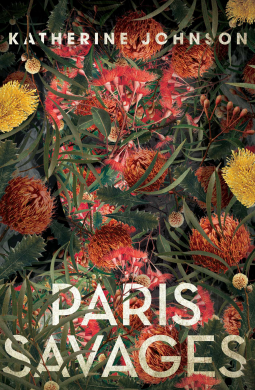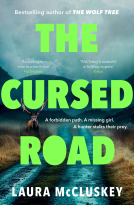
Paris Savages
by Katherine Johnson
This title was previously available on NetGalley and is now archived.
Send NetGalley books directly to your Kindle or Kindle app
1
To read on a Kindle or Kindle app, please add kindle@netgalley.com as an approved email address to receive files in your Amazon account. Click here for step-by-step instructions.
2
Also find your Kindle email address within your Amazon account, and enter it here.
Pub Date Oct 01 2019 | Archive Date Aug 31 2019
Simon & Schuster (Australia) | Ventura Press
Talking about this book? Use #ParisSavages #NetGalley. More hashtag tips!
Description
Dr Fiona Foley, Badtjala artist and academic
Fraser Island, 1882. The population of the Badtjala people is in sharp decline following a run of brutal massacres. When German scientist Louis Müller offers to sail three Badtjala people – Bonny, Jurano and Dorondera – to Europe to perform to huge crowds, the proud and headstrong Bonny agrees, hoping to bring his people’s plight to the Queen of England.
Accompanied by Müller's bright, grieving daughter, Hilda, the group begins their journey to belle-époque Europe to perfom in Hamburg, Berlin, Paris and eventually London. While crowds in Europe are enthusiastic to see the unique dances, singing, fights and pole climbing from the oldest culture in the world, the attention is relentless, and the fascination of scientists intrusive. When disaster strikes, Bonny must find a way to return home.
A story of love, bravery, culture, and the fight against injustice, Paris Savages brings a little-known part of history to blazing life, from award-winning novelist Katherine Johnson.
Available Editions
| EDITION | Other Format |
| ISBN | 9781925384703 |
| PRICE | A$32.99 (AUD) |
Average rating from 4 members
Featured Reviews
‘My views on the matter are quite strong, you may have gathered. The matter is simple. The spectacs have grown in size and nature and are now something quite ugly, telling us more about ourselves than the visiting tribes. If you keep showing him, as you have,’ he said, ‘his worth as a natural example of his type will diminish. It would be a great loss.’
This novel has rather devastated me in the way that only brilliant fiction can. There is a beautiful spirituality present throughout the entire novel that is in sharp contrast to the distressing history that it conveys. I have heard in passing about humans from different cultures appearing in ethnographic exhibitions, but I have never been immersed into a story that explores it so fully. It is a history that is so offensive, yet these ethnic shows, ‘human zoos’, were big business in Europe and America in the late nineteenth and early twentieth centuries. I can barely fathom a society that considered showing fellow humans beings in such a manner – an entirely dehumanising practice that really redefines for me, exactly who was the more ‘savage race'. The shows themselves were tragic enough, but the scientific research was distressing and sickening. There seemed to have been a complete detachment on the part of scientists. These people were specimens to experiment on, not human beings to consider. This novel is meant to make the reader uncomfortable. Hidden histories once exposed are like that.
‘During our time here Papa has added to the ethnographic notes that our patron, Mr Sheridan, requested. Papa's own tests included measurements of people’s bodies and strength, although Mama and I never liked such invasions. As Mama said, we do not need rulers and lengths of tape to see that our friends are as human as we are. ‘The act of measurement reduces us, Louis,’ she said, not unkindly, taking his hand into her own. Mama, like Mr Sheridan, preferred studies of what people do and what they know. But Papa argued that scientists overseas would demand objective facts.’
Paris Savages is uniquely narrated. We have Hilda, who is compassionate and personally attached to Bonny, Jurano and Dorondera. Then we gain additional insight into Hilda’s perspective via her diary, offering the reader an interesting dual gaze from the one perspective. It was cleverly done. A third perspective is offered by a ghost narrator, whose job it is to tell us the story from Bonny’s perspective. I really loved this narrative tool, it was beautifully done, harnessing Bonny’s spirituality and conveying his intelligent analysis of the situation he and his fellow Badtjala travellers had found themselves in. We are also privy to what is going on back home in Fraser Island through the gaze of this perspective. Like I mentioned earlier, this is a very immersive novel and this is largely owing to the style of narration.
‘Do not think the ghost storyteller is blind to Hilda’s distress. She feels it deeply, but that is another story, and it is Bonny’s story she promised to tell now as best she can. Hilda, the ghost storyteller has seen, has started a journal. The ghost storyteller is pleased. She goes on, whispering the story into the wind in the hope it will be heard by all who stop to listen.’
I felt very much a part of the story in terms of journeying through it all with Hilda. Right from the beginning, when they all board the ship off the coast of Fraser Island, I was filled with a sense of unease that was mirrored within Hilda. As her unease moves into concern, morphing into distress at what is happening to her friends, so too did I feel all of these emotions and feelings of entrenched dread and horror at what was unfolding. I found this to be such an affecting novel, yet not so much that I couldn’t read it because it was too distressing, more that I wanted to know everything about the history; I wanted to fully appreciate the horror of what has been done to indigenous people in the pursuit of science and spectacle, with callous regard for them as human beings. Exploring this history through fiction was ideal for me, because I honestly could not have gone there with it in a non-fiction form. As far as colonial history goes, this is a sample of some of our worst. I am so grateful to Katherine Johnson for giving us Paris Savages. It is an exceptional novel that is so well informed, intelligently articulated, and portrayed with truth and empathy. Highly recommended reading.
‘Hilda felt sick. What had she and her father done bringing Bonny, Dorondera and Jurano here? She had thought they were helping. She had hoped the crowds would look upon her friends with the admiration the three had been denied in their own country and that they would be treated well.’
Thanks is extended to Ventura Press for providing me with a copy of Paris Savages via NetGalley for review.
Readers who liked this book also liked:
Laura McCluskey
General Fiction (Adult), Mystery & Thrillers







